|
Collaboration Opportunities for Rice Technology Adoption in African Countries
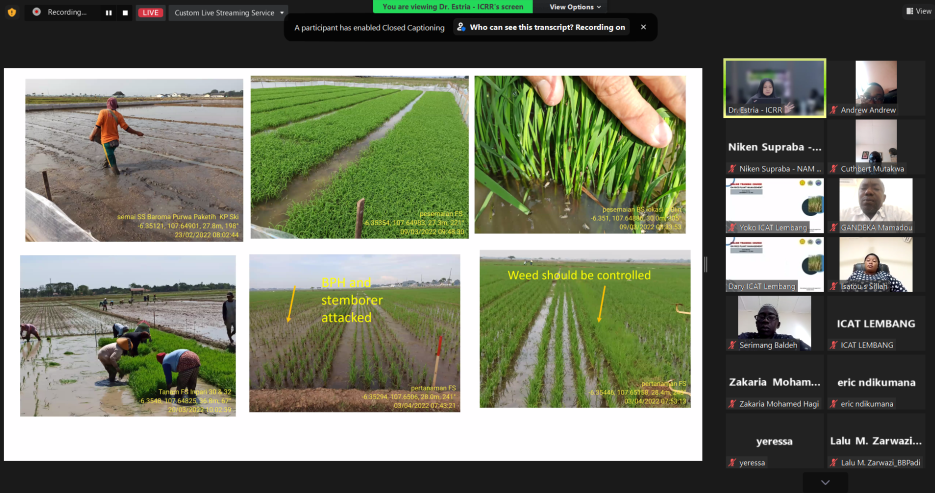
Rice productivity is linked to the use of high-yielding varieties, knowledge of how to control pests and diseases of rice plants, and the suitability of the post-harvest process in accordance with good rice farming practises.
Africa contributes significantly to global rice production in 2021-2022, with countries in Sub-Saharan Africa producing 20 million metric tonnes and countries in North Africa producing 2 million metric tonnes.
Rice farming in Africa, on the other hand, faces challenges such as a lack of water sources, flooding, and low productivity.
As a result, cooperation between African countries and other developing countries, such as Indonesia, is required to strengthen food security in the African Region, particularly rice commodities.
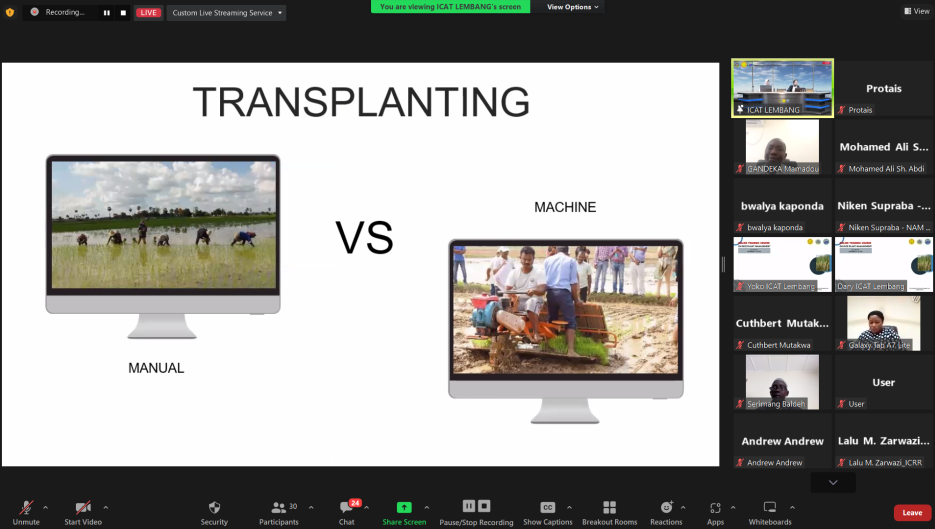
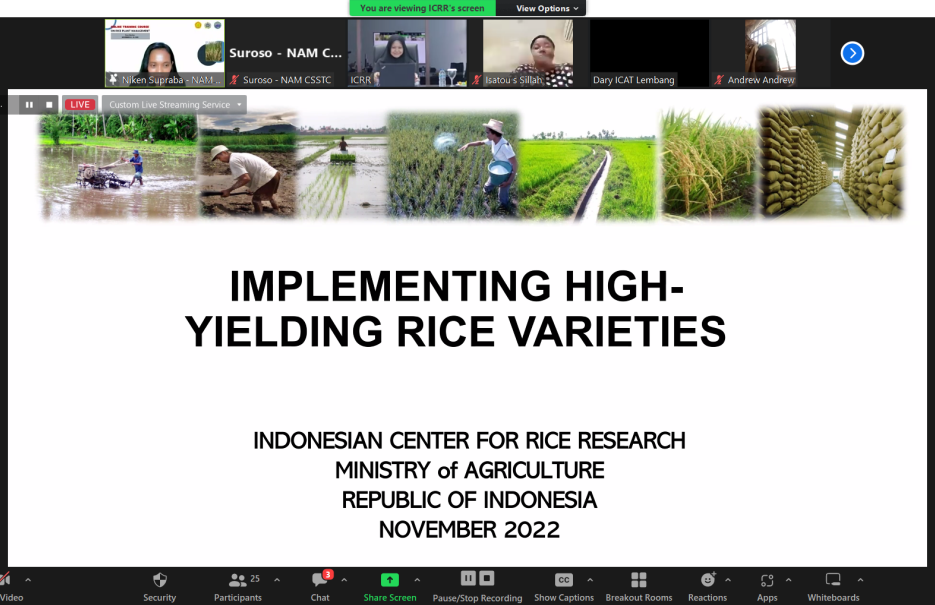
The Non-Aligned Movement Centre for South-South Technical Cooperation (NAM CSSTC), in collaboration with the Ministry of Agriculture and the Ministry of Foreign Affairs of the Republic of Indonesia, and supported by Manobi Africa, hosted a "Online Training Course on Rice Plant Management for African Countries" from November 21 to 24, 2022. Burundi, Gambia, Somalia, Tanzania, and Zambia were among the African countries represented.
Experts from the Indonesian Center of Agricultural Training of Lembang, Indonesian Rice Research Center, and Manobi Africa presented the material, which was titled "Success Story of Rice Management Training Cultivation," "Rice Integrated Crop Management in Indonesia," "Field preparation," "The Implementation of Rice Superior Varieties," "Rice Planting," "Fertilising and irrigation," "Pest and disease," "Weed management," and "Rice Harvest and Post-Harvest Management."
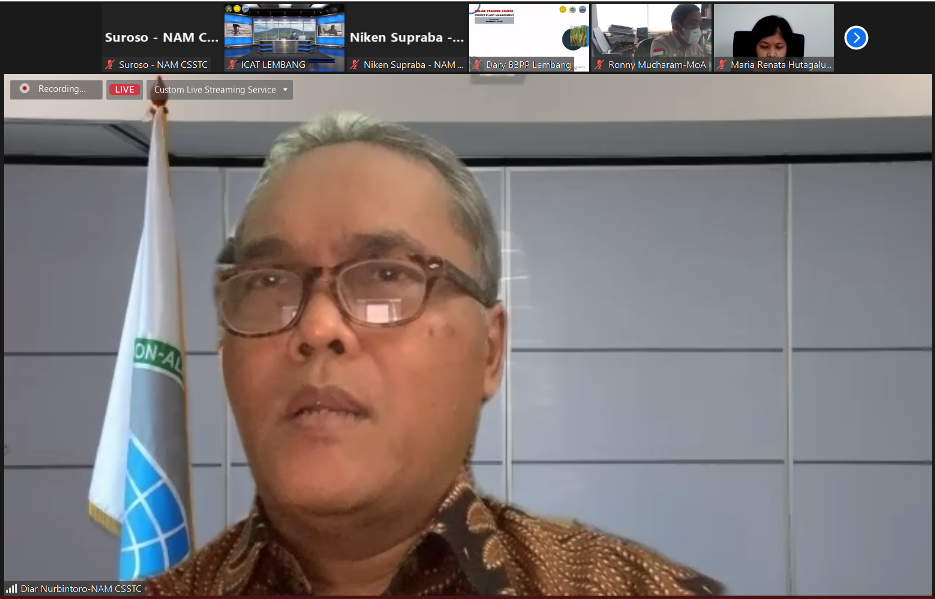
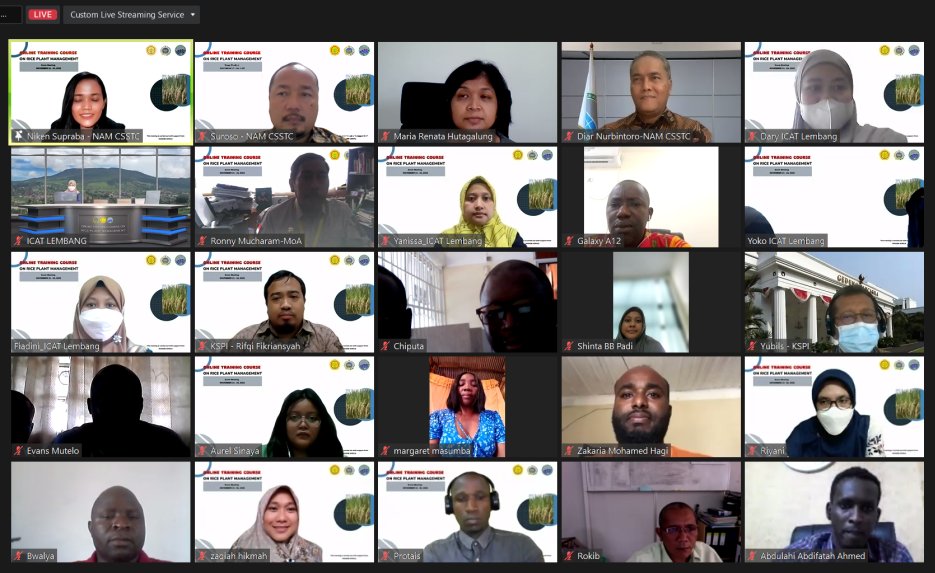
The materials presented by experts, according to NAM CSSTC Director Diar Nurbintoro, can bridge the knowledge gap in modern rice cultivation practises and provide opportunities for technology adoption in participating countries.
Participants identified investment opportunities in African countries by Manobi Africa, techniques for motivating small-scale farms to adopt technology, techniques for selecting superior seeds, integration of aquaculture with rice farming, time intervals for land use from harvest to planting, maintenance of soil quality and water quality management, advantages of hybrid seeds, and procedures for releasing research results of seeds to the public.
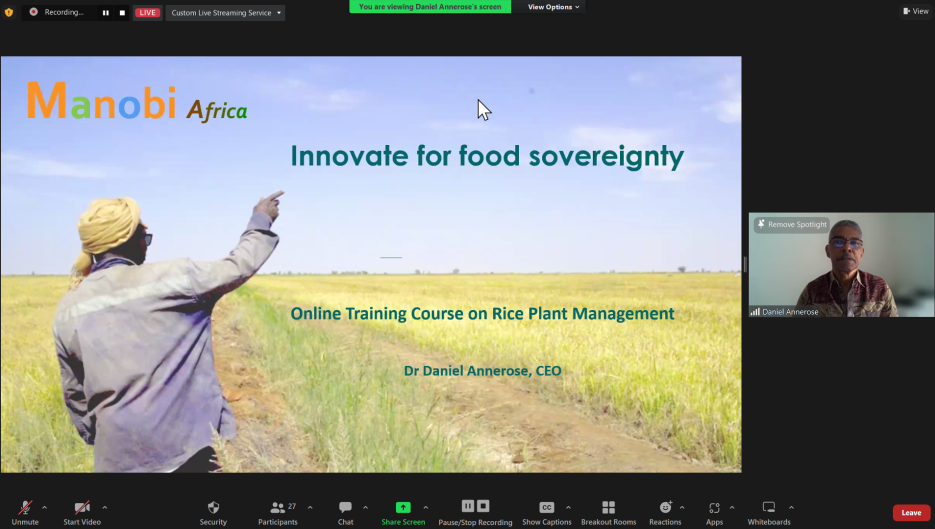
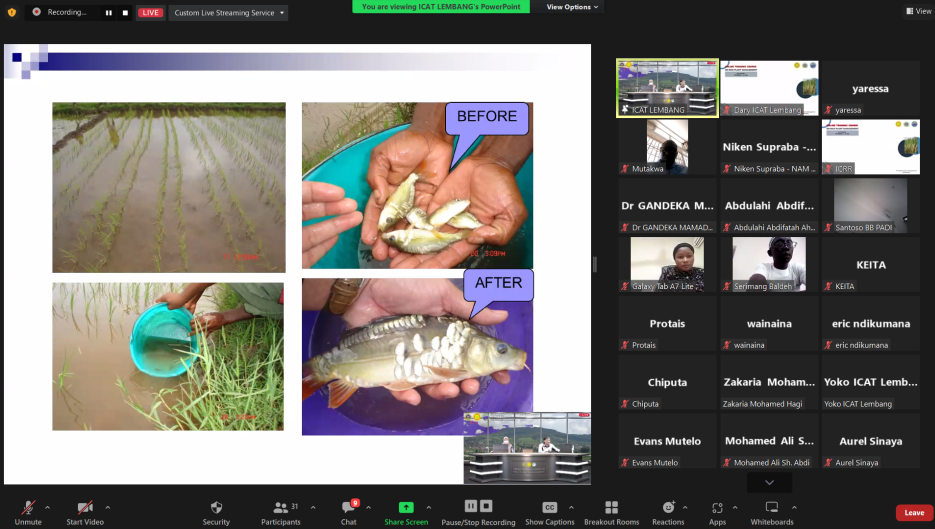
It is well known that funding is one of the most important factors that can motivate small-scale farmers to adopt technology; salt can be used to measure the quality of seeds; not all fish species can be used in rice-fish farming; three months is the time span for replanting rice on the same land; soil and water quality maintenance are both important; hybrid seeds are only suitable for irrigated land; and 5 to 10 years is the time span for adopting seeds developed through researched-based breeding.
The Indonesian Ministry of Foreign Affairs will follow up on this virtual training with face-to-face training in 2023.
|

